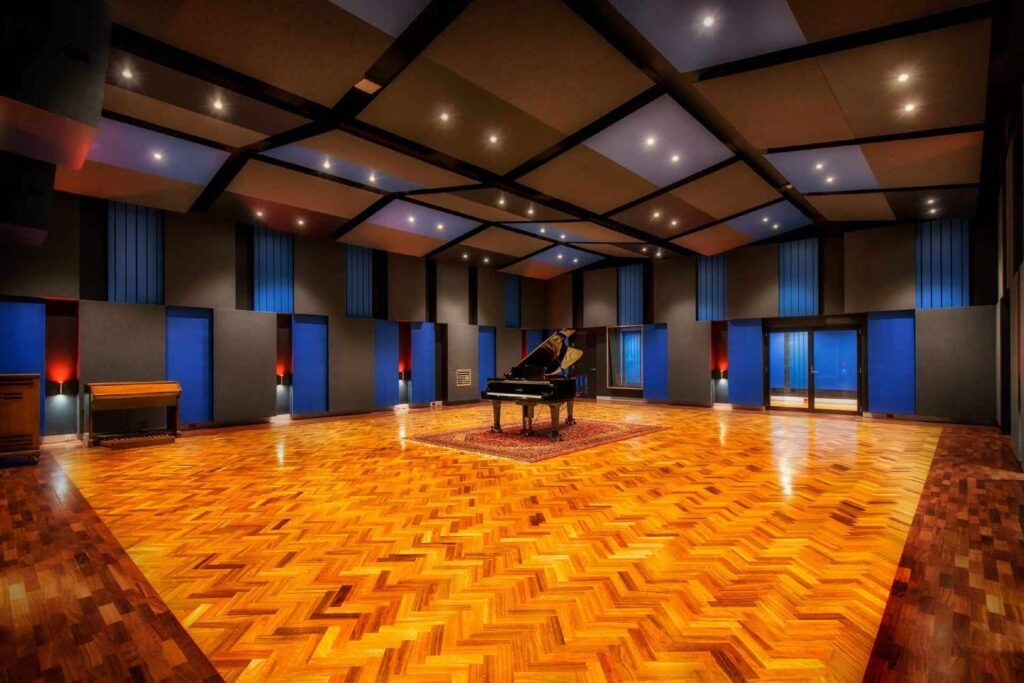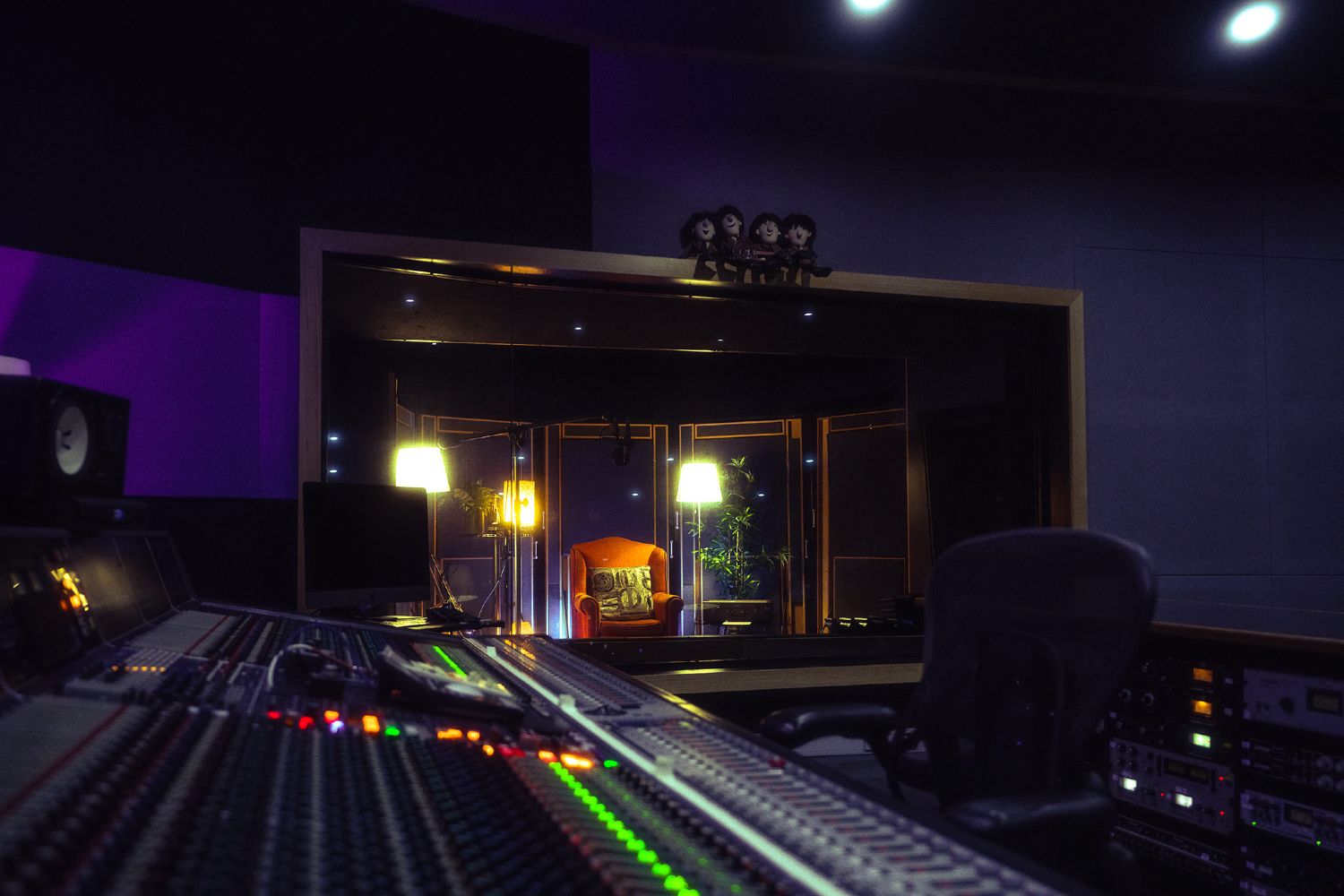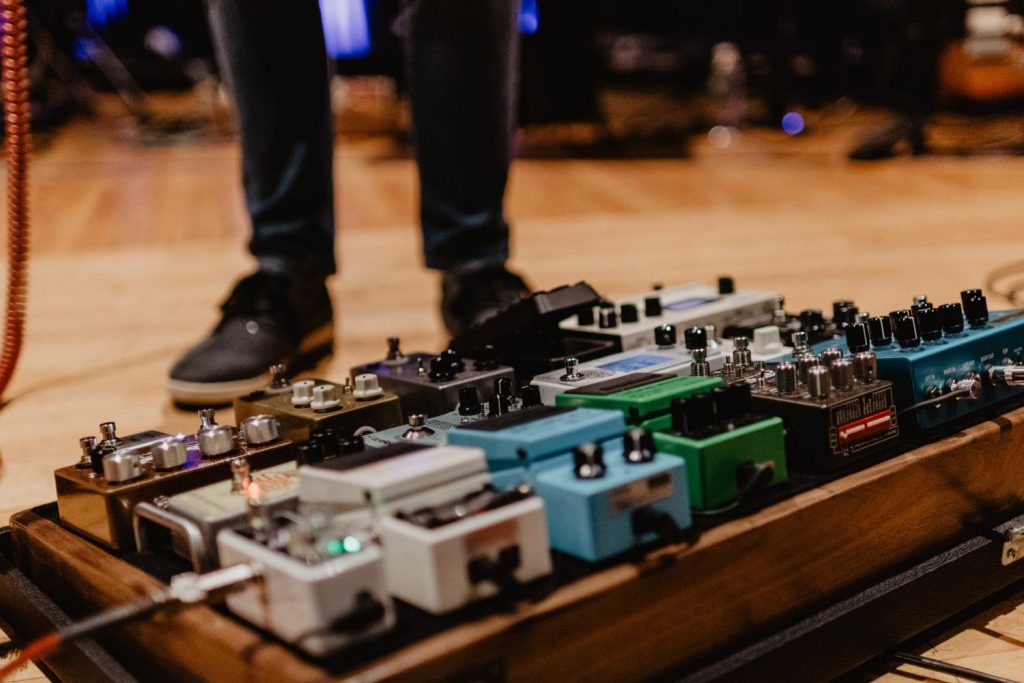Studios 301 in Sydney are one of the oldest and most-renowned recording studios in the world. World-class facilities like this provide top-tier service to professional artists, but they also hold a wealth of knowledge in the recording, producing, mixing and mastering spaces
It makes sense then, for Studios 301 to be associated with the Abbey Road Institute, now with locations all around the world, to come together for the 301 Academy, an education experience unlike any other.
Studios 301
“We’re very integrated. We’ve all come from Studios 301, where our background is working at big studios,” says Lynley White-Smith, CEO of Abbey Road Institute Australia, and head of Partnerships at Studios 301. “When Abbey Road Institute came into the picture, we all hopped over there as well.”
Read all the latest features, columns and more here.
“301 is the only place where we do specialised [work],” begins Stefan du Randt, head of Audio at Studios 301 and Programs Manager at the Abbey Road Institute.
“Jack is basically a producer,” he explains, introducing us to Jack Garzonio, who also works as a facilitator at Abbey Road Institute. “And Jack does indie bands and string recording. Then Simon [Cohen] does almost exclusively vocals, a bit of pop music as well.” Stef explains. “And I do just mixing and Dolby Atmos mixing.”
Stef goes on to explain that while Abbey Road Institute runs an Advanced Diploma program, it is after 301’s traditional internship (intern, runner, assistant engineer etc.) identified a gap in audio education programs, regardless of where they were completed. The gap is the people-skills associated with producing music, something that has historically only been learned on the job, often at the mercy of a session, artist or other client. The Studios 301 Academy and Abbey Road Institute are moving to close that gap.
“It’s an introduction to studio etiquette et cetera.” Stef states.
Jack picks up here “I do the making of the recording and the production of the record.” he begins. “Historically, the producer isn’t the person that would mix, the mixer isn’t the person that would master the song, and that’s the way we still do it here. And so, this is the way we’ve been running the Academy so far.”
“Abbey Road Institute in Australia is co-located with Studios 301,” begins Lynley. “Studios 301 is one of the oldest recording studios in the world. 1926 is when we opened as Columbia Graphophone. Over the years it’s changed location, it’s changed ownership, it was EMI Studios after Columbia Graphophone, and then Studios 301, then we had a few shifts, but we have 100 years of history in pro audio, big studio training that’s been passed down.”
301 Academy
This is all to say that there’s really no one in Australia more qualified for pro audio education. A long history of professional work has now been passed onto working engineers and producers, those people now facilitating teaching within the 301 Academy program as well and continuing to work every single day as world-class engineers. Studios 301 and the Abbey Road Institute provide all the practical skills we’ve discussed like microphones, signal chain workflow and mixing, but with the people skills embedded into the course to allow graduates to enter the workforce with confidence.
“When we opened Abbey Road Institute in Australia, that was off the back of the Abbey Road Studios London education program, which is now a global network of schools. It’s London, Paris, Amsterdam, Johannesburg, Miami and us.” Lynley explains. “They also have the philosophy that the training prior to music education popping up as a specialist stream, has always been about the in-studio hierarchy, so that is what we have alway done at Studios 301.”
“When people come into the studio environment,” begins Stef. “They’ve been taught how to mic a snare drum and mix a song, but not how to be a person in a recording studio, if that makes sense?”

“We have this one idea,” Stef chuckles, asking Lynley if it’s okay to continue. Lynley says yes with a laugh.
“… it’s supposed to be the ‘301 Bootcamp’. Basically what we want to do is go to all the schools, and get the very best,” Stef explains. “It’s not knowing where to mic the drum, but knowing how the snare mic goes into the wall box, goes into the patchbay, how the patchbay works, how to set up a foldback for people.”
Jack continues, saying “There’s a big difference between having the theoretical knowledge of what a microphone is and what a microphone does, and the reality of running a session.”
“The pure panic of running a session.” adds Stef with a big smile.
“And in our experience,” says Jack. “All the schools, including Studios 301, are great and are providing people with a lot of knowledge, but there’s a difference then in the actual workplace, in knowing how to run a session.”
“I personally think that it does take time, a bit of practice, and what better way of achieving that knowledge than in a place where we do it constantly.” Jack says.
We chat for a moment about giving students the space to make a mistake. I myself have brought sessions to a grinding halt when I’ve miscommunicated, misunderstood or mishandled whatever problem has been thrown my way.
“It’s an intimate space,” agrees Lynley. “It is higher stakes when it comes to your interpersonal skills and studio etiquette.”
Jack goes on to list the non-musical skills needed to run a session, like operating the air con or knowing when the coffee shop closes. All laughable, maybe, until you have a sweaty artist who needs a 3pm pick-me-up to continue performing.
“Another thing we’ve got on the boiler is the intensive academies, which are a bit more niche in regards to the genre.” begins Lynley. “We’re really focusing on making the courses more collaborative, get people cooking, get them in studios.” she says.
“Being able to apply more of the professional development, real world practices like writing camps, collaborative sessions, working with our team who are doing this every day.”
Lynley speaks further to the wider appeal and focus of Abbey Road, offering both a one year Advanced Diploma for focused, practical pro audio study, as well as short courses and masterclasses. Abbey Road Institute is market-focused, and aim to provide what people need, but also in the format they need their education delivered in. They’re ready to be available for what their applicants need to get the most from the program. Unironically, you’d expect nothing less from an institution so focused on providing great service to artists, clients and musicians who need the best experience possible.
For more info, keep reading about the 301 Academy here.







